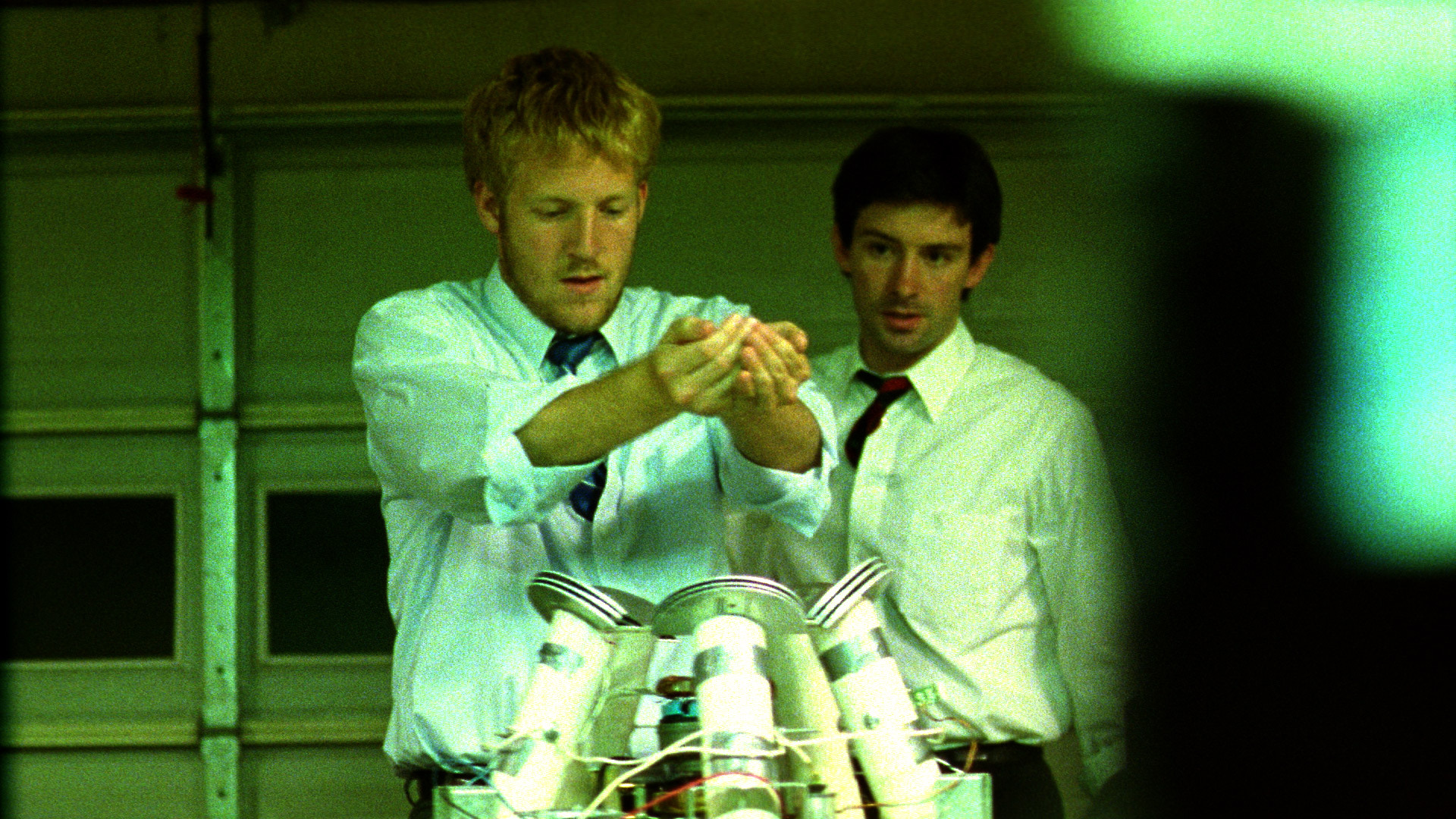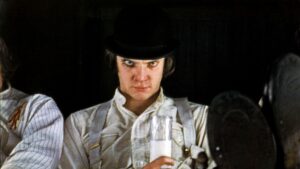Table of Contents
Introduction: Understanding Primer
“Primer” is a film that stands out for its complexity and intricacy, challenging viewers to engage with it on multiple levels. As we delve into the concept of Primer explained, we uncover the psychological and philosophical undertones woven throughout its narrative. The film explores themes of ambition, trust, and the human condition, all while presenting a unique take on the idea of time travel.
Each character’s journey offers profound insights into the nature of self and the consequences of our choices. By examining the intertwining lives of the protagonists, we can better appreciate how personal motivations shape their paths, ultimately leading to a multifaceted conclusion that invites reflection and analysis.
Throughout this post, we’ll explore the depths of Primer’s psychological themes, its philosophical implications, and the cinematic techniques that create its unique atmosphere. Join us as we unlock the intricate puzzle that is Primer.
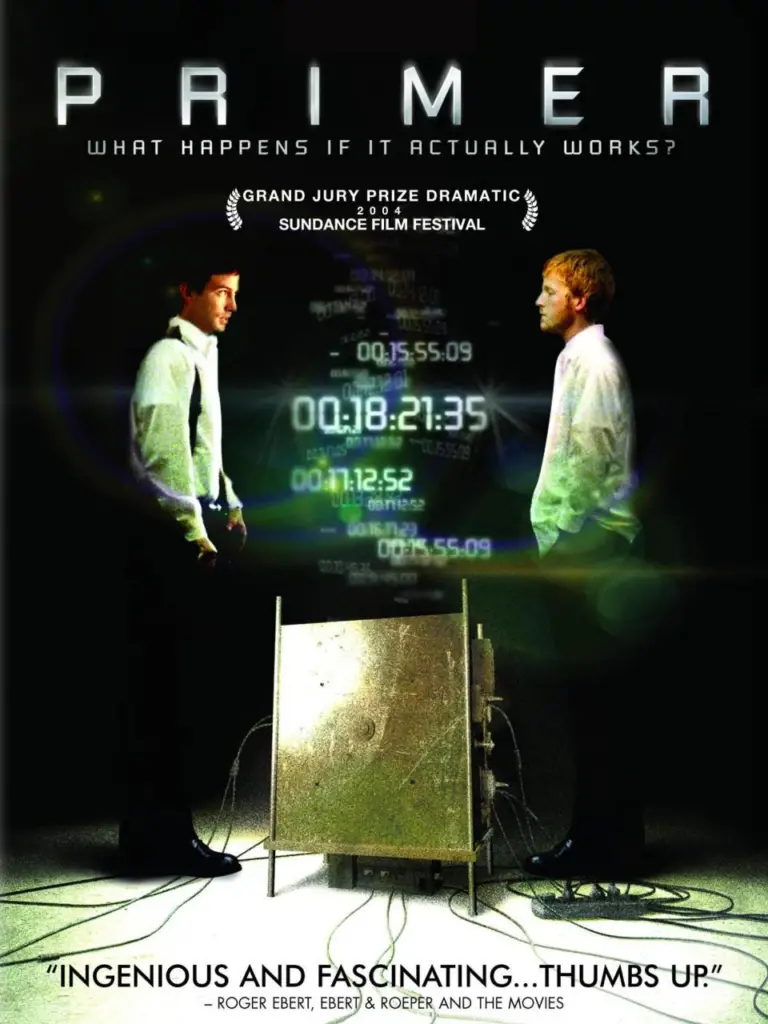
The Psychological Depths of Primer
Trust and Betrayal
At its core, Primer delves into the psychological landscape of trust, particularly between its two main characters, Abe and Aaron. Their relationship begins as a collaborative partnership, driven by shared ambition to create something revolutionary. However, as they navigate the complexities of time travel, this trust begins to fracture. The tension escalates as each character grapples with the implications of their invention, leading to a delicate dance of manipulation and surveillance.
What starts as a mutual goal quickly devolves into paranoia, where each character begins to second-guess the intentions and actions of the other. This psychological unraveling raises crucial questions about the nature of relationships when faced with profound ethical dilemmas. The film suggests that in the pursuit of knowledge and power, personal connections can easily be sacrificed, illuminating the darker aspects of human ambition.
Identity and Self-Perception
The concept of identity plays a significant role in Primer, as the characters confront multiple versions of themselves throughout the timeline. Each time travel experience forces Abe and Aaron to confront who they are in relation to their choices. The psychological strain of encountering alternate selves reveals a fascinating exploration of self-perception.
As they manipulate time, the characters find themselves struggling with their sense of self. This leads to existential reflections about what it means to exist within a fractured timeline. The film effectively portrays the fear of losing one’s identity and the anxiety that stems from the ability to alter past actions. In this sense, Primer raises questions about authenticity and the nature of reality, as the lines blur between who they were and who they are becoming.
Isolation and Consequences
Isolation is another critical aspect explored in Primer, emphasizing the psychological toll of their extraordinary circumstances. As Abe and Aaron delve deeper into their experiments, they begin to alienate themselves from others, prioritizing their pursuit over personal connections. This self-imposed isolation serves not only as a commentary on their intellectual ambitions but also as a reflection of the sacrifices made in the name of progress.
The consequences of their actions echo throughout the film, illustrating how isolation can lead to moral ambiguity and ethical conflicts. As they grapple with their responsibilities, the psychological ramifications of their choices become increasingly apparent. Each decision carries weight, forcing them to confront not only the fallout affecting their lives but also the lives of those around them. Through this lens, Primer not only examines the psychological depths of its characters but also invites viewers to reflect on the broader implications of ambition and the human experience.
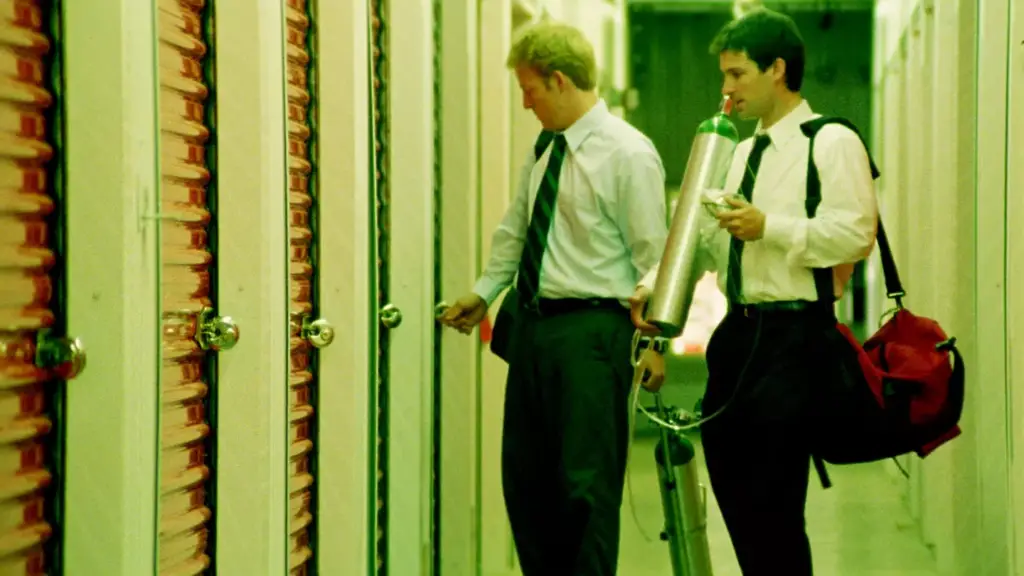
Philosophical Implications of Time Travel in Primer
The Nature of Free Will
One of the most significant philosophical implications presented in Primer revolves around the concept of free will. As Abe and Aaron manipulate time, they are confronted with the question: Are their choices genuinely their own, or are they predetermined by the very act of traveling through time? This dilemma challenges the traditional notion of free will, suggesting that with every decision made, they create alternate realities where different outcomes exist.
As the characters gain the ability to see alternate paths their lives could take, they must confront the paradox posed by determinism versus free agency. The act of time travel becomes a double-edged sword, allowing them to influence outcomes while simultaneously questioning the authenticity of their choices. This conflict prompts viewers to ponder whether they, too, are navigating life with the illusion of control, while unseen forces dictate their fates.
Ethical Considerations of Time Travel
Primer delves into the ethical implications that arise from time manipulation, particularly how the characters grapple with the consequences of their actions. The moral quandaries they face underscore the potential for harm when wielding the power to alter reality. Time travel in this context becomes not just a scientific endeavor but a profound ethical responsibility.
Abe and Aaron’s experiments raise critical questions about the morality of intervening in one’s past. The ripple effects of their decisions lead to unforeseen consequences, affecting not only their own lives but also the lives of innocent bystanders. The film challenges viewers to consider the ethics of playing ‘God’ and emphasizes the heavy burden of responsibility that accompanies such power, engaging in a philosophical discussion about the limits of human intervention.
The Concept of Identity and Temporal Self
Another philosophical theme explored in Primer is the fluidity of identity within the context of time travel. As the characters encounter multiple versions of themselves, the film raises intriguing questions about personal identity. What does it mean to be ‘you’ if different versions of yourself can exist simultaneously across various timelines?
This notion challenges the steadfast concept of identity and invites viewers to consider the relationship between the self and time. The characters’ experiences highlight a profound existential crisis as they grapple with their changing identities. By emphasizing the complexities of self-conception within a temporal framework, Primer encourages philosophical discourse on the nature of existence and the implications of living in a multiverse.

Ending Explained: The Enigmatic Conclusion
The Final Confrontation
The ending of Primer leaves viewers with more questions than answers, as Abe and Aaron reach a climax of tension and distrust. After numerous time loops and encounters with their past selves, the characters find themselves at an impasse. Each man has taken drastic actions to protect his own interests, leading to a confrontation that encapsulates the emotional and moral stakes of their choices. The film culminates in a significant moment where Abe realizes the extent of Aaron’s manipulations, forcing him to reckon with the reality that their friendship has been irreparably fractured.
In the final sequences, the audience witnesses Abe grappling with the knowledge that multiple versions of both himself and Aaron exist simultaneously. This inevitable clash brings to light the psychological breakdown of trust, reflecting the deeper implications of their time travel. The film implies that the very act of manipulating time is a destructive process, ultimately leading to the dissolution of their once-solid friendship.
The Multiverse and Its Implications
Throughout the conclusion of Primer, the concept of the multiverse is at the forefront, suggesting that every decision creates a new branch of reality. As the narrative unfolds, the audience is left to consider the ramifications of these alternate realities. The film concludes with Abe deciding to escape from the cycle of distrust by resolving to prevent any future encounters with Aaron. This decision signifies his attempt to break free from the confining loops and implications of their project.
However, the film leaves us pondering: if Abe succeeds, what becomes of the other versions of himself? The narrative closes with a sense of ambiguity, alluding to the possibility that each creature of their time travel experiment may exist in its bubble, floating in a landscape of infinite choices. The layers of reality prompt philosophical discussions about fate, consequence, and the interconnectedness of choices that define existence.
The Significance of the Last Image
As the film concludes, viewers are presented with an impactful final image of Abe walking away from the chaos of his circumstances. This visual representation signifies not only the closing of a chapter but also the beginning of an uncertain journey ahead. The weight of the choices made hangs heavy over him, creating a poignant moment that underscores the film’s exploration of human ambition and the quest for understanding.
In this last moment, Primer conveys that knowledge, while empowering, may also serve as a burden if one isn’t prepared for its consequences. As Abe steps away from his previous life, he embodies the ongoing struggle to reconcile one’s pursuits with the ethical dilemmas they invoke. This enigmatic conclusion encapsulates the intricacies of the film and invites viewers to engage in discourse about the broader implications of time travel—an invitation to reflect on the entangled nature of existence and personal accountability.
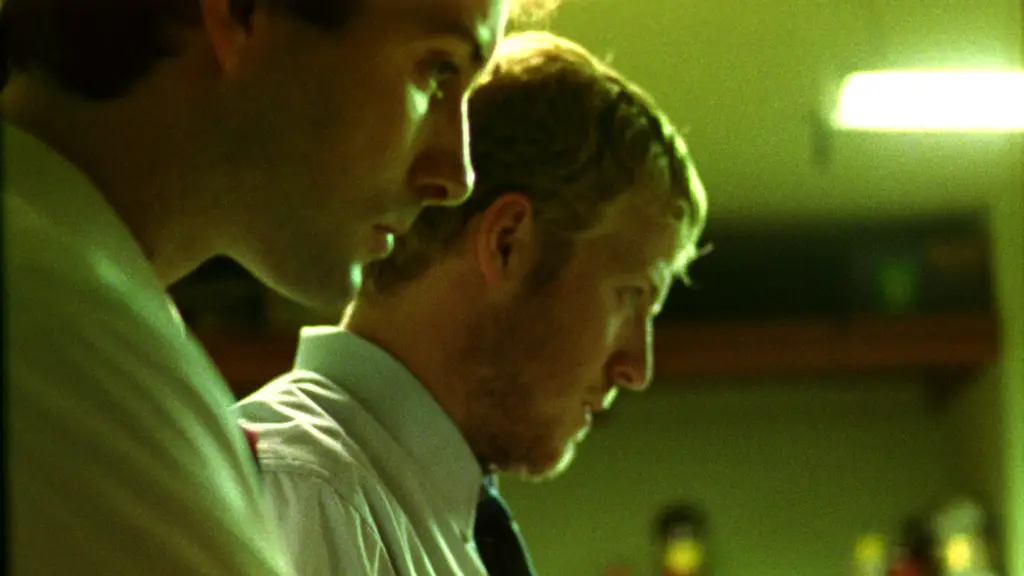
Visual and Narrative Techniques in Primer
Nonlinear Storytelling
One of the most striking aspects of Primer is its nonlinear storytelling, which immerses viewers into the intricate world of time travel and challenges traditional narrative structures. The film unfolds in a manner that mirrors the characters’ experiences, as viewers are often presented with a fragmented narrative. This technique brings forth a sense of disorientation, perfectly reflecting the complexity and chaos of manipulating time.
By employing abrupt transitions and minimal exposition, Primer compels the audience to engage actively with the plot. Viewers must piece together information much like Abe and Aaron do, navigating through the layers of time and reality. This approach not only enhances the themes of ambiguity and confusion but also emphasizes the film’s core idea: that understanding is often convoluted and not easily accessible.
Realism in Cinematography
The cinematographic choices in Primer also contribute significantly to its impact. Shot primarily in handheld style, the film captures a sense of authenticity and immediacy, drawing the audience into the protagonists’ world. This realistic approach complements the film’s scientific foundation, giving it a documentary-like feel. The use of natural lighting and minimalistic settings further grounds the film in reality, contrasting the surreal implications of the time travel narrative.
Additionally, the film’s deliberate pacing allows for moments of quiet contemplation amid the tension. Long takes and unhurried dialogue foster a sense of intimacy with the characters, making their emotional struggles more palpable. This emphasis on realism invites viewers to relate to the protagonists’ dilemmas on a personal level, enhancing the psychological depth of the story.
Dialogue and Ambient Sound
Another noteworthy aspect of Primer is its dialogue, which is often dense and laden with technical jargon. The characters engage in unapologetically complex discussions about their experiments and theories. This intricacy not only immerses viewers in their intellectual pursuits but also serves to reinforce the film’s themes of ambition and the pursuit of knowledge. The use of jargon may be disorienting, but it reflects the characters’ dedication to their craft while simultaneously paralleling the complexity of the narrative itself.
Complementing the dialogue is the film’s ambient sound design, which plays a crucial role in creating an immersive atmosphere. Subtle soundscapes accentuate moments of tension and introspection, enhancing the emotional weight of the narrative. This auditory layer encapsulates the film’s themes of isolation and the consequences of choices, reinforcing the psychological undertones that permeate the story.
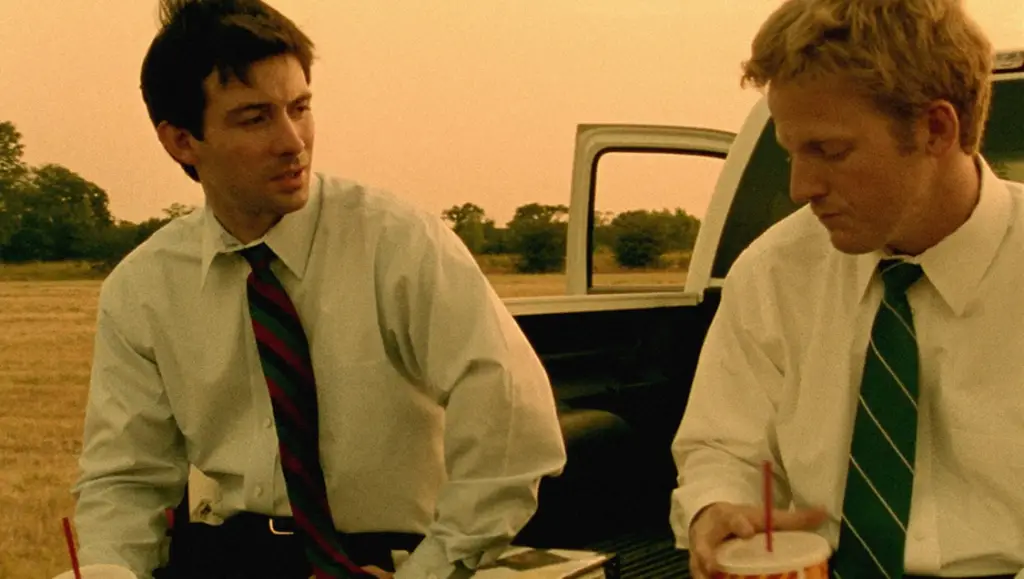
Book Recommendations that Echo Primer’s Themes
To further explore the psychological and philosophical themes presented in Primer, here are five thought-provoking books that resonate with the film’s complex narrative:
“Slaughterhouse-Five” by Kurt Vonnegut
This classic novel delves into the concept of time and free will through the experiences of Billy Pilgrim, who becomes “unstuck in time.” As he navigates different moments of his life, Vonnegut examines the impact of trauma and the illusion of choice. The book’s exploration of time loops and nonlinear storytelling echoes the themes found in Primer.
Buy “Slaughterhouse-Five” here
“The Time Traveler’s Wife” by Audrey Niffenegger
In this unique love story, the protagonist, Henry, involuntarily travels through time, which complicates his relationship with his wife, Clare. The novel explores the emotional and psychological consequences of time travel, emphasizing the effects on identity and the struggle to maintain connections across different timelines.
Buy “The Time Traveler’s Wife” here
“The Structure of Scientific Revolutions” by Thomas S. Kuhn
Kuhn’s seminal work challenges the notion of linear progress in science, introducing the idea of paradigm shifts. This book aligns with the themes of ambition and the pursuit of knowledge found in Primer, as it critiques the established scientific framework and invites readers to reconsider the nature of discovery and innovation.
Buy “The Structure of Scientific Revolutions” here
“The Eternal Sunshine of the Spotless Mind” by Charlie Kaufman
While not a traditional book, the screenplay of this film offers profound insights into memory, identity, and the choices we make in relationships. It grapples with the consequences of tampering with memory, paralleling the ethical dilemmas faced by Abe and Aaron in Primer.
Buy “The Eternal Sunshine of the Spotless Mind” here
“The Unbearable Lightness of Being” by Milan Kundera
Kundera’s novel examines themes of existence, choice, and the transient nature of life through the intertwined relationships of its characters. The philosophical reflections on love, desire, and the nature of reality resonate with Primer’s exploration of time and its implications on identity and personal connections.
Buy “The Unbearable Lightness of Being” here
Conclusion: Reflecting on the Complexity of Primer
In exploring the rich tapestry of Primer, we’ve delved into its psychological depths and philosophical implications, revealing the intricate layers that make this film an enduring enigma. The narrative invites viewers to confront profound questions about trust, identity, and the ethical dilemmas tied to ambition and time manipulation.
As we reflect on the themes presented, it’s clear that Primer is more than just a time travel story; it’s a meditation on the human experience and the often-painful repercussions of our choices. The film’s nonlinear structure and realistic portrayal of the characters amplify its message, challenging our understanding of reality and existence.
Ultimately, Primer explained serves as an invitation to engage with its complexities, urging us to consider not only the science of time travel but also the intricacies of our own lives and decisions. By examining these themes, we gain a deeper appreciation for the storytelling craft and the philosophical questions that continue to resonate long after the credits roll.
Take a look at all our in-depth reviews here.

